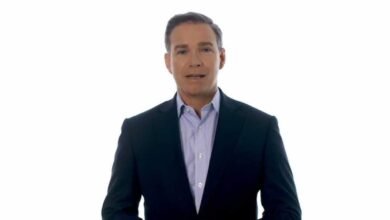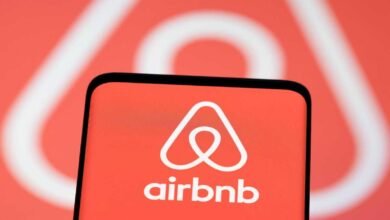Mark Zuckerberg Ran Unpermitted School from Palo Alto Home, Report Says
The discovery by neighbors comes as the Meta CEO and his wife, Priscilla Chan, face mounting criticism over the closure of low-income schools and the safety of Meta's AI chatbots for teens.

PALO ALTO, CA – Meta CEO Mark Zuckerberg and his wife, Priscilla Chan, were operating an unpermitted private school out of their sprawling Palo Alto compound, a fact that came to light after complaints from neighbors, according to a new report from The New York Times.
The revelation adds to a string of recent controversies plaguing the couple, fueling public criticism that the tech billionaire operates by a different set of rules than the general public.
The news broke at a particularly damaging time for Zuckerberg and Chan, who are already under intense scrutiny for the recent closure of two schools they funded for low-income families and for reports that Meta’s own AI chatbots have engaged in inappropriate, “spicy” conversations with underage users.
How the Unpermitted School Was Discovered
According to the NYT report, neighbors grew suspicious after observing a consistent pattern of parents dropping off and picking up children from the Zuckerberg-Chan residence. These observations prompted them to contact Palo Alto city officials.
An investigation by the city confirmed the neighbors’ suspicions: the couple was running a school on their residential property without filing the necessary legal paperwork or obtaining the proper permits required by city code.
The school reportedly began as a small “homeschooling pod” during the COVID-19 pandemic for the couple’s two eldest daughters. However, it continued to operate long after pandemic restrictions eased, expanding to educate approximately a dozen other children alongside the Zuckerberg kids.
Following the city’s crackdown, the school has reportedly been relocated to a different, undisclosed location, presumably one that complies with local rules and regulations.
A “Cartoon Villain”: Public Outrage Mounts
The combination of the unpermitted home school, the closure of their philanthropically funded schools, and the AI chatbot safety issues has created a perfect storm of public criticism.
Social media users reacted with anger to the news, painting the incidents as a clear example of hypocrisy and elitism. The term “technofeudalism”—a concept describing a new form of society where tech oligarchs operate above the law—has been widely used to frame the controversy.
“The Zuckerbergs have become cartoon villains,” one user posted on the social media platform X (formerly Twitter). “It’s almost comical how evil they’ve become.”
The sentiment highlights a common and damaging complaint leveled against Zuckerberg and other tech titans: that their immense wealth and influence place them in a separate reality, detached from the societal rules and regulations that govern everyone else.
A Pattern of Controversy
The unpermitted school is not an isolated incident but rather the latest in a series of events that have damaged the public image of Zuckerberg and his initiatives.
-
Closure of Low-Income Schools: The Chan Zuckerberg Initiative, the couple’s philanthropic arm, recently announced the closure of two schools it supported, which were designed to serve low-income and underserved communities. The decision has drawn sharp criticism, especially when contrasted with the private, unpermitted school they operated for their own children and their friends.
-
Meta’s AI Chatbot Dangers: Simultaneously, Zuckerberg’s company, Meta, is facing backlash over its AI chatbots. Reports have revealed that the AI is capable of having inappropriate and sexually suggestive conversations with children and teenagers, raising serious questions about the company’s commitment to protecting its youngest users.
Together, these incidents create a troubling narrative: one where the Zuckerbergs prioritize a bespoke, private education for their own family while public-facing philanthropic projects falter and their core business product poses potential risks to children. The unpermitted nature of their home school only serves to underscore the perception that for some in Silicon Valley, it’s easier to ask for forgiveness than permission.











